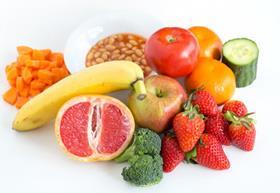
Reducing the price of fruit and veg by 10 per cent could prevent around 23,000 deaths from stroke, diabetes and heart disease a year, a major new international study has found.
Researchers from Tufts University in the US, along with Imperial University and University of London, looked at the effects of changing the price of seven food items on the number of annual deaths from cardiometabolic diseases in the US. The study was published this week in science journal BMC Medicine.
On healthy food, such as fruits, vegetables, whole grains, and nuts and seeds, they looked at the potential effects of price subsidies, while on processed and unprocessed red meats and sugary drinks they looked at the impact of taxes.
They found that if the prices of all seven foods were altered by 10 per cent, an estimated 23,000 deaths per year could be prevented, accounting for 3.4 per cent of all cardiometabolic disease deaths.
A 30 per cent price change almost tripled that result with 63,000 deaths prevented per year, or 9.2 per cent of all cardiometabolic disease deaths.
“This is the first time, to our knowledge, that national data sets have been pooled and analysed to investigate the influence of food subsidies and taxes on disparities in cardiometabolic deaths in the United States,” said lead author José L. Peñalvo.
“We found that modest price changes on healthy and unhealthy foods would help decrease overall cardiometabolic deaths and also reduce disparities between socio-economic strata in the US, the largest changes coming from reducing the prices of fruits and vegetables and increasing the price of sugary drinks.”
Senior author Dariush Mozaffarian said the findings are “particularly relevant” today in context of growing concerns over diet and cardiometabolic disease.
“The current strategies, such as education campaigns or food labeling, have improved overall dietary habits, but much less so among people with lower socioeconomic status,” he said. “These results suggest that financial incentives to purchase healthy food, and disincentives to purchase unhealthy foods, can prove successful in meaningfully reducing cardiometabolic disease disparities.”
Diabetes deaths were most influenced by taxes on sugar-sweetened beverages, while stroke deaths were most influenced by subsidies for fruits and vegetables.
They chose the seven foods based on evidence of their associations with cardiometabolic diseases, including stroke, diabetes and overall cardiovascular disease, and policy interest.



